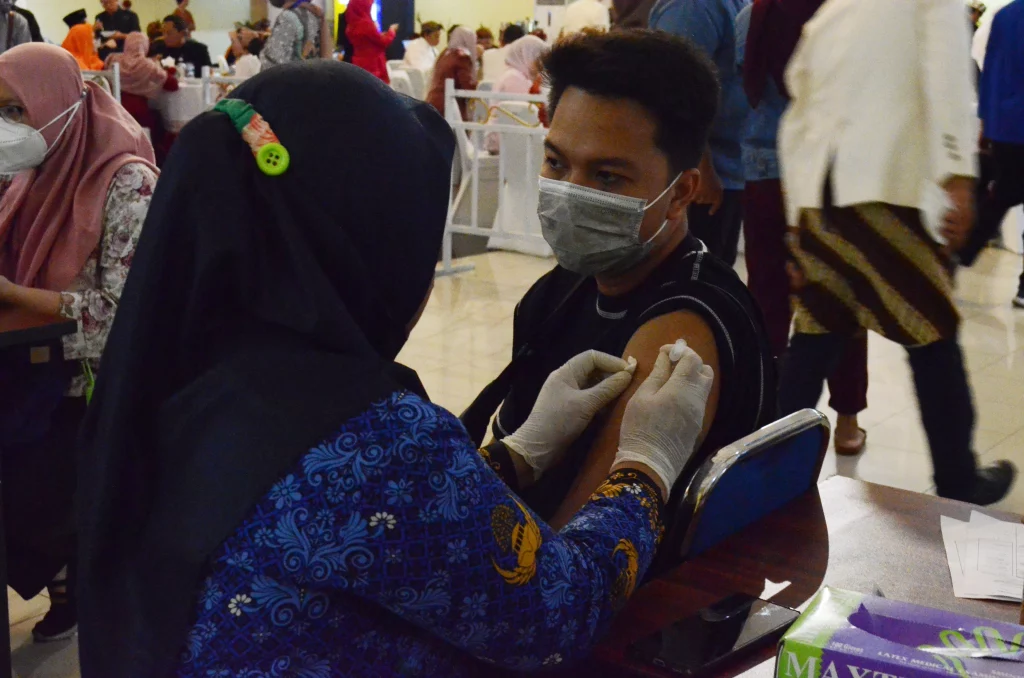UNAIR NEWS – Recently, the AstraZeneca vaccine recall has sparked pros and cons among the public. The sudden recall of the AstraZeneca vaccine has affected public confidence in the national immunization program. This incident raises doubts about the safety and efficacy of the vaccine and concerns about participation in the next immunization program.
In response to this issue, sociologist Dr. Septi Ariadi Drs MA as an activist in the science of Health Sociology shared his views. Septi revealed that the rumor of recall has actually been circulating for a long time, but it becomes a trending topic today. Many factors caused the recall. However, the government’s sporadic way of informing and carrying out the recall may lead to public’s concerns.
Furthermore, the issue had a significant impact on people with positive impression of AstraZeneca. Although COVID-19 cases are decreasing, the recall is causing anxiety and concern, especially for those who had been receiving AstraZeneca and had not had booster shot.
Meanwhile, the underclass, which has limited health resources, is further excluded. “Vaccine recalls may worsen the situation and make it harder for them to get adequate protection from COVID-19,” Septi said.
The fear of possible AstraZeneca side effects has spread. Although experts and health authorities have emphasized that the serious risk side effects from the AstraZeneca vaccine is still relatively low, some individuals remain concerned about the possibility of developing rare complications.
Therefore, Septi emphasized the importance of government’s role in providing an accurate, transparent and comprehensive explanation for the AstraZeneca vaccine recall. Effective communication can reduce public concerns and build trust in the national vaccination program.

“The government needs to be transparent with public. What are the side effects of AstraZeneca, how effective is it, what are its uses, what are the minimal effects. Everything must be informed. Create synergy not only with health workers, but also with the mass media,” he added.
Septi related this phenomenon to Health Sociology theories of preventive action. When presented with information about a preventive health intervention, such as a vaccine, individuals weigh the risks and benefits associated with the intervention.
“People used AstraZeneca among many vaccine brands at the time. This is based on knowledge influenced by mass media, knowledge from individuals and others, habits, internalized beliefs, and much more,” Septi said.
Some people still choose with the AstraZaneca because they feel the benefits outweigh the risks, while others may choose to use a different brand of vaccine. And others extremely choose not to be vaccinated.
The AstraZeneca vaccine recall illustrates the complexity of inter-related sectors. Governments and health authorities need to provide accurate, transparent and easy-to-understand information about the reasons for the recall, the risks and benefits of the vaccine, and the next steps. The recall is a reminder that immunization programs are a dynamic and ongoing process. Health authorities should monitor the safety and effectiveness of national immunization programs.
Author: FISIP UNAIR
Editor: Feri Fenoria
Read also:
Crowd behavior pushes fans critisizing national team, UNAIR Professor says









